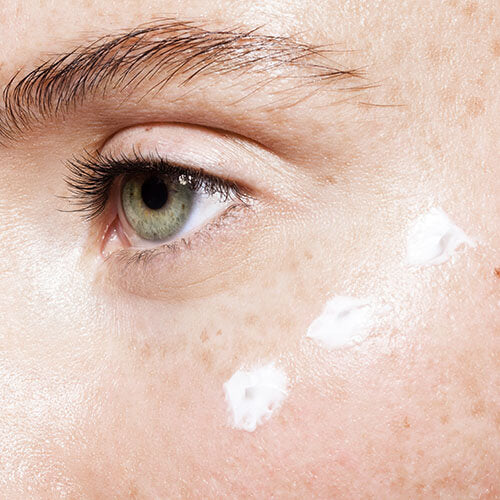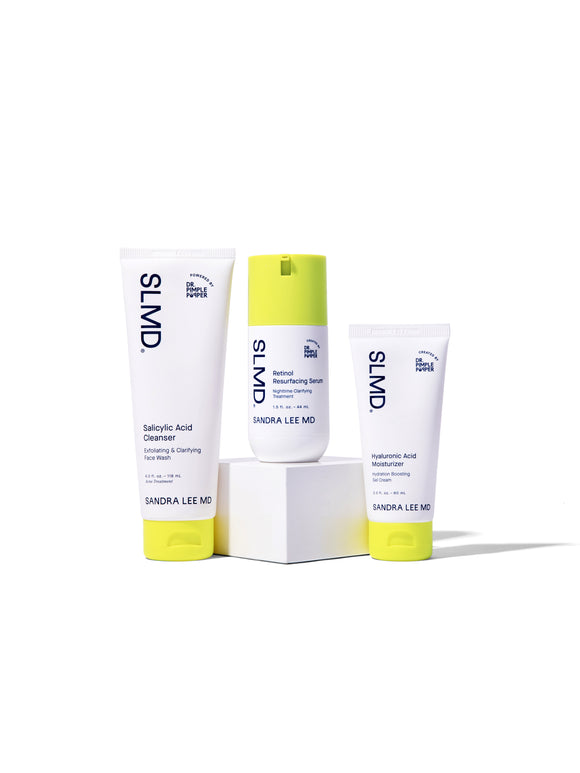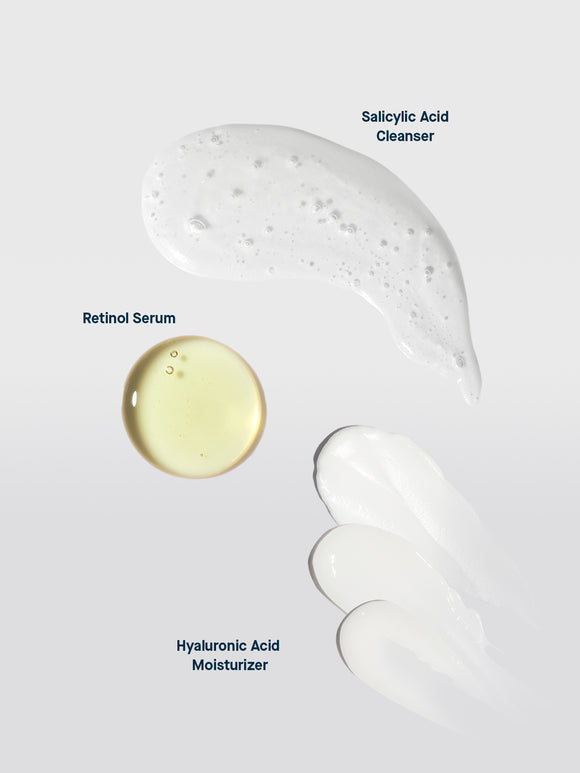
Does Retinol Really Thin Your Skin?
Ah, retinol: dermatologists seem to love it, but some trending skincare experts and influencers have been outspoken against using it — voicing concerns about its effects. So, does retinol thin your skin? We’re breaking down one of the most common myths about retinol.Published:
2 minute read
Ah, retinol: dermatologists seem to love it, but some trending skincare experts and influencers have been outspoken against using it — voicing concerns about its effects. So, does retinol thin your skin? We’re breaking down one of the most common myths about retinol.
Article Quick Links
What causes skin to thin?
Before we talk about potential effects of retinol, let's figure out what might cause skin thinning to occur naturally. You might remember that chemicals called reactive oxygen species (ROS) accumulate as a natural result of intrinsic aging (the normal process of getting older). But these ROS can increase dramatically from the environmental contributors to extrinsic aging — most significantly, UV radiation.
These excess free radicals set off numerous chemical reactions in the skin, many of which affect what’s called the dermal extracellular matrix (ECM): commonly known as collagen and elastin.
It’s complicated, but two important consequences are:
- Releasing matrix metalloproteinase (MMP): this group of enzymes, produced by epidermal keratinocytes and dermal fibroblasts, cleaves (breaks down) collagen protein molecules.
- Inhibiting transforming growth factor beta (TGF-β): this protein helps regulate the production of procollagen type I — a precursor to the most abundant form of skin collagen.
Translation: natural aging and UV exposure over time both contribute to the damage, destruction, and decreased production of collagen. This affects the skin in several ways:
- Thins the dermis
- Contributes to sagging and wrinkling
- Exacerbates dryness
Does retinol thin your skin?
Let’s cut to the chase: decades of research indicates that retinol does not thin the skin. So why does this rumor persist? It’s probably due to a widespread characterization of retinoids as exfoliants.
It’s not wrong to say that vitamin A derivatives exfoliate — it’s just not the whole story. The most significant action of retinoids is actually accelerating cell turnover. Here’s the difference:
- Exfoliants encourage the shedding of dead skin cells, either by physical or chemical means, revealing younger skin cells beneath.
- Retinoids have some keratolytic ability, but also bind to special receptors in skin cells, stimulating them to reproduce, which speeds up the entire skin cycle.
So retinol doesn’t only cause you to lose more dead cells (which would thin your epidermis over time) — it causes your skin to regenerate more quickly, so the skin cells that emerge on the surface are actually younger.
How does retinol benefit your skin?
Besides boosting cell turnover, studies show that retinoids have an incredible array of skin benefits. You might remember that retinol is an over-the-counter form of vitamin A, which means that it’s not as strong as other prescription retinoids. But its effects are largely the same — it just takes longer to generate results.
Here are the highlights:
- Mild exfoliant: studies show keratolytic effect in the stratum corneum
- Increases collagen: prevents the breakdown and stimulates its production
- Strengthens the skin barrier: fresher keratinocytes perform better
- Reduces transepidermal water loss (TEWL): helps prevent dehydration
- Curbs sebum production: influences the enzymes that regulate oil
Tailoring your retinol product to your skin type and needs can help minimize initial irritation and provide better results. Try SLMD Retinol Resurfacing Serum which has a time released formula to work gently overnight.
Be sure to only apply retinoids at night, and wear sunscreen while using any type of retinoid products.

Dr. Lee's Last Word
There’s so many reasons why dermatologists love retinol — it helps keep skin more youthful and it also works to control acne. There are some misconceptions out there, but the rumor that retinol thins your skin just isn’t true. It actually helps thicken the dermis by protecting and rejuvenating collagen fibers.









